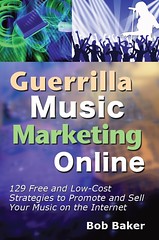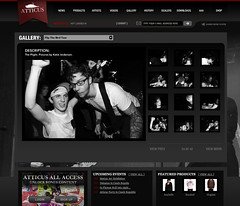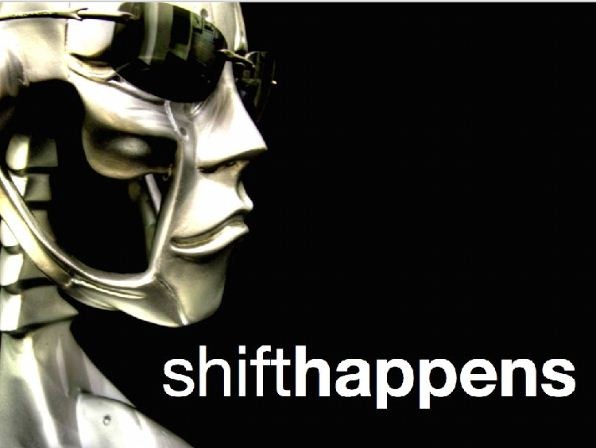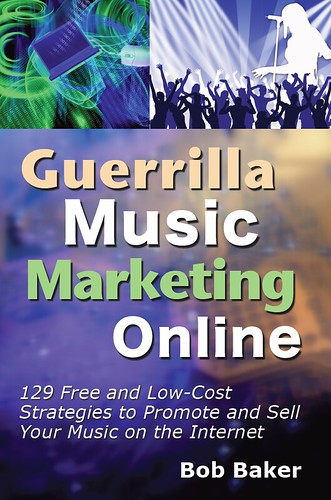I've had it with those Bastards, and I will no longer let them in my door. And ... I highly recommend you do the same.
What? Let me explain ...
Yes, I'm frustrated with U.S. politicians in D.C. But I'm not talking about them. Yes, I'm not at all happy with Wall Street insiders focused on short-term greed. But I'm not talking about them either.
I'm also fed up with the head honchos at media outlets who choose to report fear and loathing 24 hours a day. But they are not the Bastards I refer to here.
Like you, I've been bombarded with messages about debt ceilings, downgrades, downturns, shortages, layoffs, foreclosures, and more. I've had my fill.
And now I refuse to let the Bastards in my door!The Bastards I'm talking about here are not people or corporate entities. They are the negative and destructive thought forms that are hypnotizing you and me and much of the population these days.
If you want to truly survive and thrive through this (or any other) economy, you must send these Bastards packing and not let them get anywhere near the door to your psyche.
Note of Clarification ...I am NOT talking about burying your head in the sand and denying that many people are hurting financially these days. There is some very real pain being experienced by good people. There's a pretty strong chance that someone close to you is facing an economic challenge, or even you yourself are.
I get that. I have felt the pinch myself, and I have watched and am watching good friends wrestle with it.
But the best way for you to help them and help yourself is to rise above the misery mentality. Don't buy into the mass consciousness of lack and limitation. That will serve no one.
It's one thing to be aware of global economics and have empathy for those who have been affected. It's quite another to shrivel up and become a card-carrying member of the Doom and Gloom Association.
The Bastards are trying to infiltrate your brain, your mindset, and your entire belief system. Don't let them in the door!
The Best Medicine for Economic Doom and Gloom
Again, these Bastards (with a capital B) are not people or things. They are perceptions, attitudes, and highly contagious viruses of the mind that must be obliterated from your life at all costs.
They must be dealt with like the diseases that they are with swift and radical treatment. Otherwise, they will continue to fester and grow within you -- and before you know it, your physical world will reflect the sickness that permeates your mind.
In fact, your current circumstances already reflect your internal belief system -- whether you know it or not. Your physical reality is formed by what you think is possible, combined with the actions you take and how you show up in the world.
The U.S. government may have a debt ceiling, but you have internal ceilings of your own. And one of them can be described as a "growth ceiling."
That's right, your personal experience of income, joy, creativity, love and much more is very much determined by what you believe is possible and what you feel you deserve.
These factors are at work in your life whether the media is saying the economy is soaring, plummeting or in neutral. So it's a good idea to not let the Bastards in your door at any time. But during times of mass gloom-filled hypnosis, it's especially important to stand guard at the doorway to your mind.
I Repeat ... Don't Let the Bastards in the Door!By remaining in control of your attitude and outlook, you are in a much better position to see opportunities, maintain your enthusiasm, and take constructive steps to get out of any financial mess you may be in (or to help loved ones get through a challenge they are going through).
The other choice is to be sucked into the doomsday rhetoric, let the Bastards get a foot in your door, and before long your entire mental house will be filled with poison. This will cause you to retreat, miss opportunities because you are too pessimistic to see them, withhold taking action because "everyone is hurting now," and on and on.
In which position would you rather be?One way you remain empowered and in control. The other way you succumb to being a victim.
Here are three quick ways you can keep the Bastards outside your door:
1) Go on a news and media diet. It's okay to be aware of world events and to be an informed consumer and citizen. But that doesn't mean you have to submit yourself to a constant barrage of negative news programming. (There's a reason it's called "programming.") Cut way back on your weekly intake of traditional media.
To keep the Bastards from getting in your door and infecting your mind, you may need a big dose of preventative medicine. My drugs of choice are books and audio programs that remind me of my potential and recharge my outlook and skills set. Doing this will strengthen the hinges on your mental door.
The media would have you believe there's a boogeyman "out there" trying to get you. But the real culprit is the Bastard that you willingly allow inside your door!
 2) Be extremely grateful for what you have
2) Be extremely grateful for what you have. I don't want to get all "Oprah" on you and tell you to start journaling (although that can be very helpful if you're into it). But I can't stress enough the power of appreciating what you already have. So start today to count your many blessings.
When you truly appreciate the richness and abundance of the life you already lead, it gives you a much firmer launching pad from which to grow. When you only focus on what's missing and what's wrong, there's little gas in the tank to get you moving.
So, what are you grateful for? Your health or your family? Do you have a place to live, a car to drive, or clothes to wear? What about the amazing technology we have today that allows us to communicate so effortlessly? How about your gifts, talents, friends, fans, and the good deeds you have personally witnessed recently?
Going on a "rampage of appreciation" will improve your outlook. I guarantee it!
3) Be open, available and eager for more. Hand in hand with your extreme gratitude should be an openness and eagerness to experience more. Being deeply appreciative of what you have and where you are does not mean you have to settle - that this is as good as it will ever get.
Life is all about growth, evolution and expansion. All you have to do is observe nature for a while to understand this concept. You should live your life in accordance with these natural laws too. Appreciate what you have, and simultaneously open yourself up to be, do, have, and create more.
Both factors are needed. Gratitude without growth can lead to stagnation. And wanting more without appreciating what you have will leave you feeling empty along the journey. So appreciate where you are AND where you are going!
Of course, this state of eagerness for growth must be combined with action. The good news is, your actions will flow more energetically and much easier once these three steps are fully embraced.
There you have it. My prescription for overcoming the disease of economic doom and gloom: Go on a news and media diet; be extremely grateful for what you have; be open, available and eager for more; take affirmative action.
I hope these ideas help you through this and any other troubling time ahead. But whatever you do ...
Don't let the Bastards in the door!-Bob
P.S. I welcome your comments below.
 Before we leave 2011 completely behind us, here's a look back at the best posts from this blog over the past year.
Before we leave 2011 completely behind us, here's a look back at the best posts from this blog over the past year.

 In this article I’m going to quickly address something called “point of view” and why it’s so important — namely, when to use the First Person, Second Person, or Third Person perspective when talking about and describing your music.
In this article I’m going to quickly address something called “point of view” and why it’s so important — namely, when to use the First Person, Second Person, or Third Person perspective when talking about and describing your music.


 I just posted
I just posted  Many indie musicians use Limelight at
Many indie musicians use Limelight at  Yes, I'm frustrated with U.S. politicians in D.C. But I'm not talking about them. Yes, I'm not at all happy with Wall Street insiders focused on short-term greed. But I'm not talking about them either.
Yes, I'm frustrated with U.S. politicians in D.C. But I'm not talking about them. Yes, I'm not at all happy with Wall Street insiders focused on short-term greed. But I'm not talking about them either. Again, these Bastards (with a capital B) are not people or things. They are perceptions, attitudes, and highly contagious viruses of the mind that must be obliterated from your life at all costs.
Again, these Bastards (with a capital B) are not people or things. They are perceptions, attitudes, and highly contagious viruses of the mind that must be obliterated from your life at all costs. 2) Be extremely grateful for what you have. I don't want to get all "Oprah" on you and tell you to start journaling (although that can be very helpful if you're into it). But I can't stress enough the power of appreciating what you already have. So start today to count your many blessings.
2) Be extremely grateful for what you have. I don't want to get all "Oprah" on you and tell you to start journaling (although that can be very helpful if you're into it). But I can't stress enough the power of appreciating what you already have. So start today to count your many blessings. This past Saturday night, indie artist Daria Musk held a live performance using Google+ Hangouts that ended up lasting more than six hours. She did a good job promoting it beforehand, and the live event stirred up a lot more interest among G+ users as it was happening.
This past Saturday night, indie artist Daria Musk held a live performance using Google+ Hangouts that ended up lasting more than six hours. She did a good job promoting it beforehand, and the live event stirred up a lot more interest among G+ users as it was happening. Jazz guitarist
Jazz guitarist  Tech geeks the world over have been drooling the past few weeks over Google's new social platform called Google+ (which is simply pronounced "Google Plus").
Tech geeks the world over have been drooling the past few weeks over Google's new social platform called Google+ (which is simply pronounced "Google Plus").

 Meet Kendra Wright!
Meet Kendra Wright! Get 33% to 50% Off these four music marketing resources - now till 12 Noon EST on Friday, June 3.
Get 33% to 50% Off these four music marketing resources - now till 12 Noon EST on Friday, June 3. All that changed when I started hearing reports Monday morning about the unthinkable devastation in Joplin, MO, on Sunday.
All that changed when I started hearing reports Monday morning about the unthinkable devastation in Joplin, MO, on Sunday. Facebook. You already know it's the most prominent social media site on the planet.
Facebook. You already know it's the most prominent social media site on the planet. I just recorded this short audio that quickly details what I believe should be the #1 goal of your music website. I also reveal the three questions you must ask yourself when designing your music website for maximum impact.
I just recorded this short audio that quickly details what I believe should be the #1 goal of your music website. I also reveal the three questions you must ask yourself when designing your music website for maximum impact. When I was in eighth grade, I became fascinated with astronomy as I learned about the vastness of the cosmos.
When I was in eighth grade, I became fascinated with astronomy as I learned about the vastness of the cosmos. Remember, where you are is a result of what you thought, felt and did months and years ago. So, logic would tell you that what you are thinking, feeling and doing now is paving the way for where you will end up in the not so distant future.
Remember, where you are is a result of what you thought, felt and did months and years ago. So, logic would tell you that what you are thinking, feeling and doing now is paving the way for where you will end up in the not so distant future. Sunday, April 17
Sunday, April 17 2) NEW at Music Promotion Blog: "
2) NEW at Music Promotion Blog: "
 BONUS: Another Interview! Justin Lukasavige interviewed me for nearly an hour on his
BONUS: Another Interview! Justin Lukasavige interviewed me for nearly an hour on his  Do you write funny original songs? Have you ever done a song parody that went over well? Or do your live shows have some element of humor that gets your audience laughing?
Do you write funny original songs? Have you ever done a song parody that went over well? Or do your live shows have some element of humor that gets your audience laughing? The promotion and widespread sales of printed sheet music spawned a whole new industry in the late 1800s. It was a very profitable business model for many companies, as more and more music hobbyists yearned to play popular songs of the day.
The promotion and widespread sales of printed sheet music spawned a whole new industry in the late 1800s. It was a very profitable business model for many companies, as more and more music hobbyists yearned to play popular songs of the day. John McCrea, lead singer of the band Cake, stirred up a reaction when he told NPR's Melissa Block that he is skeptical about the future of music as a vocation.
John McCrea, lead singer of the band Cake, stirred up a reaction when he told NPR's Melissa Block that he is skeptical about the future of music as a vocation. Sure, I agree that things have drastically changed. The "traditional music industry" has crumbled. All the new, accessible promotion tools have created a crowded and noisy world where millions of DIY artists are clamoring for attention. Things are in flux. Nothing is predictable. There's no sure path to success.
Sure, I agree that things have drastically changed. The "traditional music industry" has crumbled. All the new, accessible promotion tools have created a crowded and noisy world where millions of DIY artists are clamoring for attention. Things are in flux. Nothing is predictable. There's no sure path to success. Here's another cold dose of reality ... That system sucked just as much as, if not more than, the current one!
Here's another cold dose of reality ... That system sucked just as much as, if not more than, the current one!